NEWS
Message from International Christian University (ICU) , No5
Update: February 12, 2021
This E-Newsletter is mainly for teachers and counselors involved in secondary education, but is open to individuals who wish to subscribe to it.
Please fill in the form below and click on the "Subscribe to this E-Newsletter" button.
Subscribe to this E-Newsletter
Message from ICU , No.5(February 12, 2021 )
Learning Support at ICU
Kose Hiroyuki,
Director, Center for Teaching and Learning
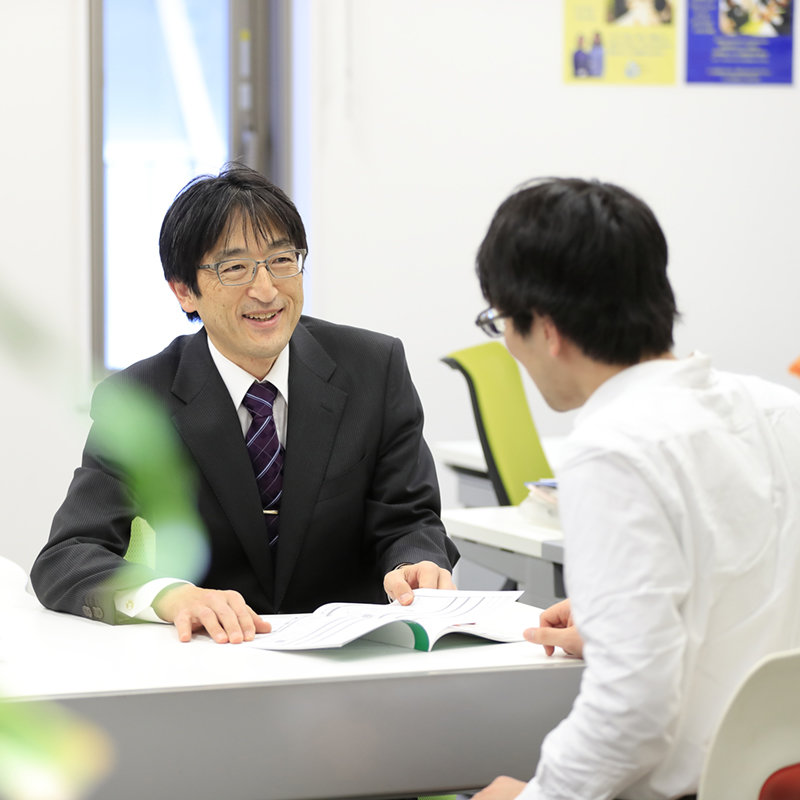 Students that fit the ICU mold
Students that fit the ICU mold
In AY2020, all ICU open campus events were held online. It was very unfortunate that prospective students could not visit the ICU campus in person. We cannot overestimate the advantages of the online meeting system, suddenly in widespread use around the world, which enabled us to connect with students living far from ICU. However, we did miss those earnest eyes of our high school visitors.
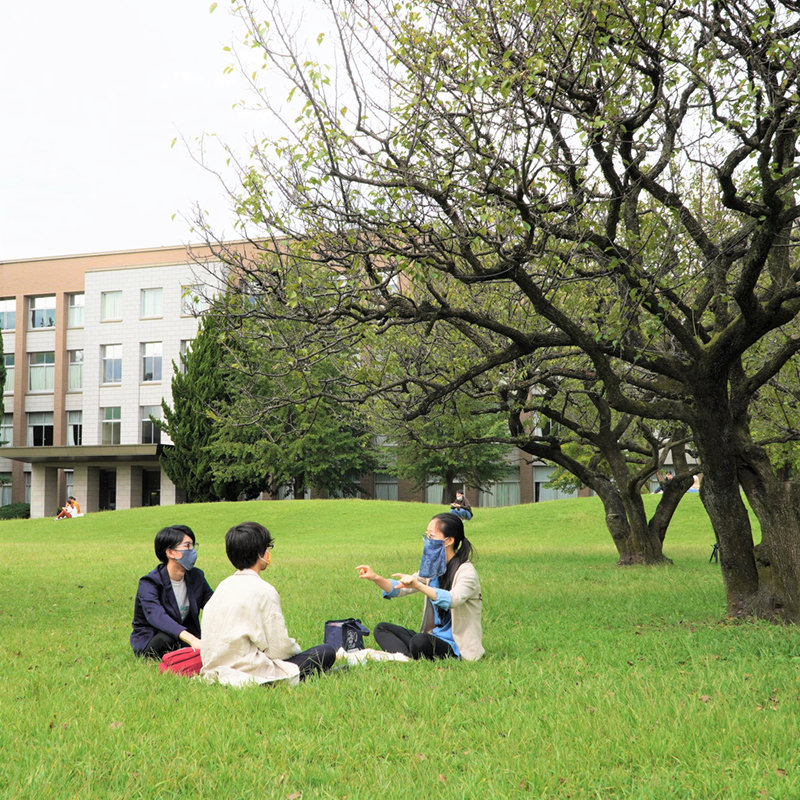 When I talk about the learning here at open campus events, I often tell participants half jokingly, not to let the captivating lingo they hear at these sessions sway their decisions. That students are attracted to the ICU culture, epitomized in liberal arts, instruction in small classes, bilingualism, internationalism, and Christianity, is gratifying. The riveting lectures they sit in on, the positive feedback from the audience and our public relations efforts genuinely reflect what we have to offer. But what matters most is whether ICU is the optimum place for them in higher education. In my view, students are a great fit for ICU if they can be level-headed about this choice. "Have you ever considered whether university education is necessary for you in the first place?"
When I talk about the learning here at open campus events, I often tell participants half jokingly, not to let the captivating lingo they hear at these sessions sway their decisions. That students are attracted to the ICU culture, epitomized in liberal arts, instruction in small classes, bilingualism, internationalism, and Christianity, is gratifying. The riveting lectures they sit in on, the positive feedback from the audience and our public relations efforts genuinely reflect what we have to offer. But what matters most is whether ICU is the optimum place for them in higher education. In my view, students are a great fit for ICU if they can be level-headed about this choice. "Have you ever considered whether university education is necessary for you in the first place?"
Our goals in learning support
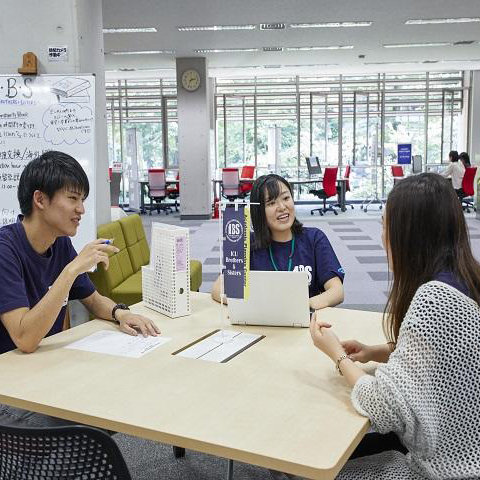 The Center for Teaching and Learning (CTL), located in the library, supports student learning. Writing is a basic skill emphasized in the instruction we offer, so students are often assigned to write reports in coursework, with the senior thesis a graduation requirement since the foundation of ICU. Students come to the CTL, which provides assistance in writing skills, with questions like, "What should I write about?" "Why didn't I get a good grade for what I thought was a well-written report?" or "How do I look for reference?" Most of the CTL tutors are graduate students, who work with our students to find solutions for these problems.
The Center for Teaching and Learning (CTL), located in the library, supports student learning. Writing is a basic skill emphasized in the instruction we offer, so students are often assigned to write reports in coursework, with the senior thesis a graduation requirement since the foundation of ICU. Students come to the CTL, which provides assistance in writing skills, with questions like, "What should I write about?" "Why didn't I get a good grade for what I thought was a well-written report?" or "How do I look for reference?" Most of the CTL tutors are graduate students, who work with our students to find solutions for these problems.
This kind of assistance may seem familiar, as it is similar to the supplementary classes offered in high schools. But our ultimate goal at the CTL is for students to study on their own initiative, by helping them plan their courses. At ICU, students choose their major in the end of sophomore year. In making this choice, what they studied before college does not matter. In Japan, students tend to be separated into arts and science streams in senior high school, which is often criticized for its adverse effects. This divide forms a structural part of the university entrance examination system, so students are often confused when we talk about a perspective across the arts and sciences. As a faculty member teaching biology at ICU, some of my biology majors have told me they were in arts streams in high school. Reasons for this vary, but despite interest in the subject, they chose arts streams to avoid the mathematics test, for which they lacked confidence, in the university entrance examinations. After entering ICU, the biology courses they took rekindled interest in the subject, leading them to choose it as their major. It's not uncommon for students to graduate from ICU majoring in a subject they had never thought about before college. We want to provide an environment for students to pursue academic interests through self-directed learning even after they have chosen a major. This is what academic planning is for.
Learning support on a one-on-one basis
We don't have many students on campus now due to the pandemic, but since the Learning Commons (learning space open to students) is located in front of the CTL Office, I keep an eye over students every day.
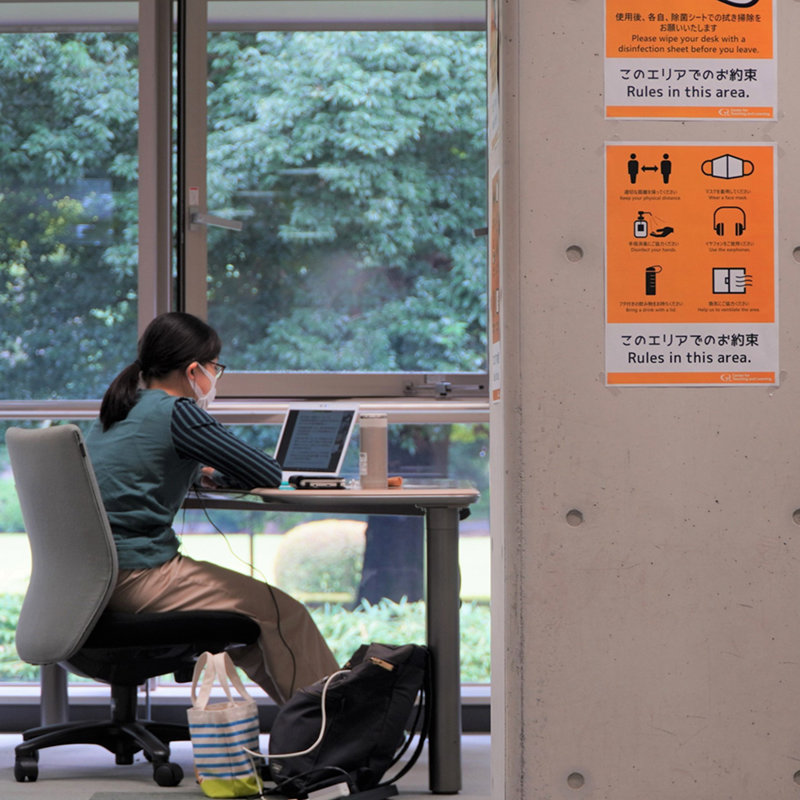 They seek advice at the CTL for wide-ranging problems, but sometimes a casual talk can lead to identifying an issue that may have been overlooked. Sometimes we are overwhelmed by the deep-rooted nature of a student's problem, feeling powerless to help. Even then, we feel it is important to listen, because they can vent their feelings and perhaps come up with ideas for resolving the situation as they explain the circumstances. We believe there must be a solution for everything, somewhere.
They seek advice at the CTL for wide-ranging problems, but sometimes a casual talk can lead to identifying an issue that may have been overlooked. Sometimes we are overwhelmed by the deep-rooted nature of a student's problem, feeling powerless to help. Even then, we feel it is important to listen, because they can vent their feelings and perhaps come up with ideas for resolving the situation as they explain the circumstances. We believe there must be a solution for everything, somewhere.
In liberal arts education, we study the truth from many persepectives on one's own initiative, but this is founded on the belief that the truth exists. And ye shall know the truth, and the truth shall make you free, is a well-known verse in the New Testament (John 8:32). It may take time for global society and students alike to find solutions for problems, but the Christian mindset that there is a solution for everything, provides tremendous hope and courage in motivating ourselves to push the boundaries under any circumstance. It lets us take a step forward, not only amidst helplessness in the face of a pandemic but also in choosing a major and a future career.
The emphasis on diversity today also means that we tailor our support for students according to the needs of each individual. This takes more time and effort, so we are in the process of creating a universal design in our educational environment to meet the needs of students from diverse backgrounds. Our goal is to establish an environment for all students to live and study in comfort. The key to accomplishing this will be one-on-one assistance, the cornerstone of learning support at ICU.
Let me quote another verse from the New Testament. I had many things to write, but I will not in ink and pen write unto thee: But I trust I shall shortly see thee, and we shall speak face to face. (3 John 1:13-14)
In imparting what really matters to our students, we want to engage with them in person, not online or by email. Lack of face-to-face communication due to the coronavirus crisis has emphasized its importance all the more.
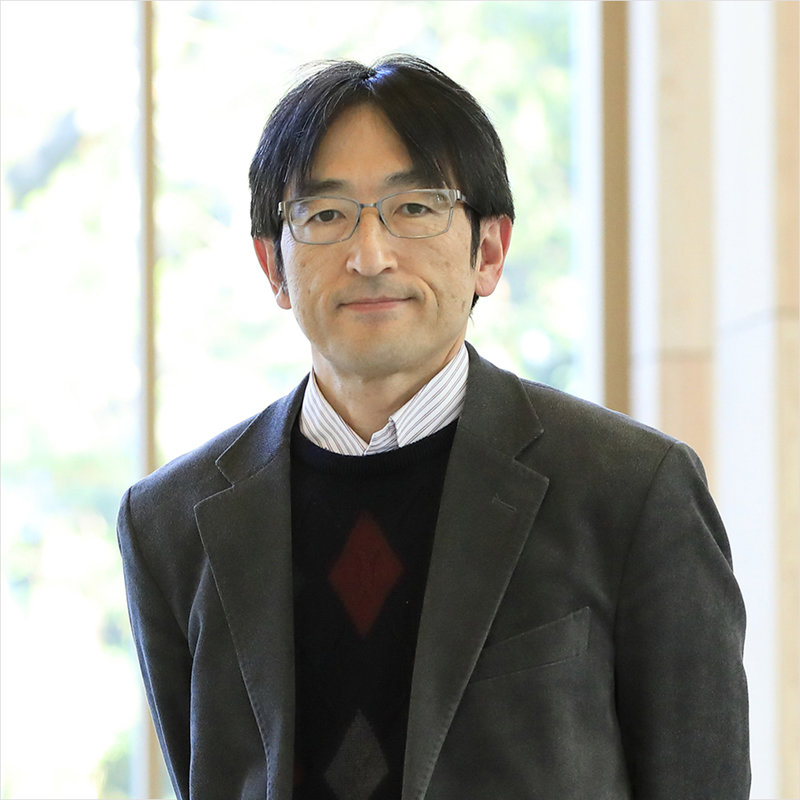 Profile of Professor Hiroyuki Kose
Profile of Professor Hiroyuki Kose
Professor Kose received Ph.D at University of Illinois, Urbana-Champaign. He started teaching at ICU in 2008 after serving at National Institute of Genetics, University of Tokushima School of Medicine Institute of Animal Experimentation. Served as Associate Dean of College of Liberal Arts (in charge of curriculum), and associate Director of Center for Teaching and Learning (CTL) , before being appointed Director of CTL in 2019.
